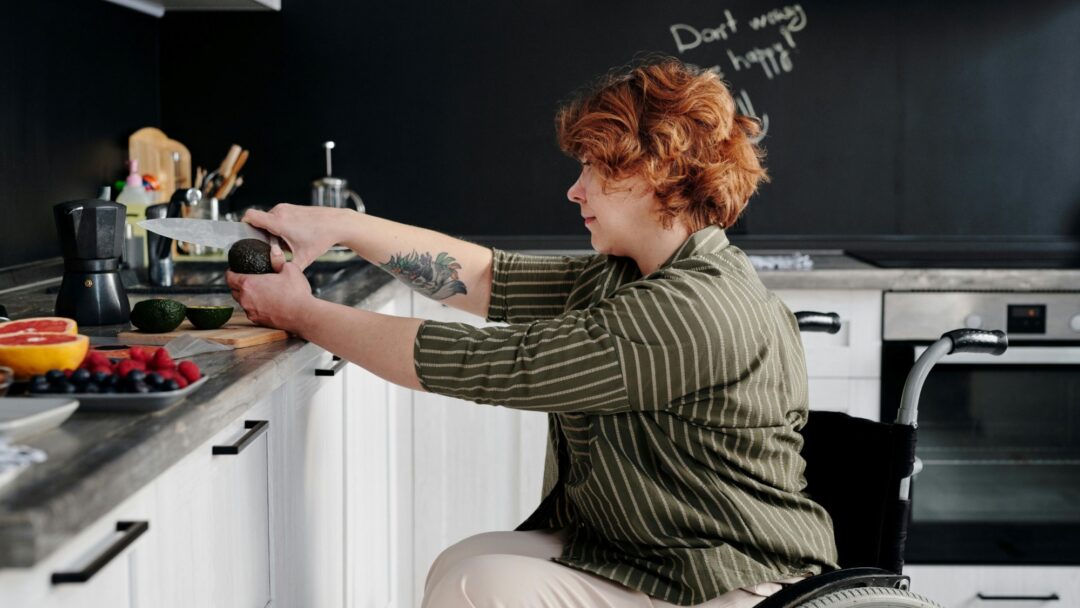News
Dane Cross housing accessibility standards
Emma Myers 0:00
The Queensland Productivity Commission is pushing to opt out of the national construction codes liveable housing design standard. The standard allows Australians with disability and with an access need to add simple features for a better quality of life and to improve safety. Disability advocate Dan cross spoke with the wire, claiming the recommendation is a step backwards for accessibility.
Speaker 1 0:31
There's a set of minimum accessibility features that are required for all new homes that are built under the National Construction Code. So we're talking about practical, common sense, things like step free entry, wider internal doorways and hallways and reinforced walls in the bathroom so we can allow for future grab rail installation. These features, they make home safer and easier for people to live in, not just for people with disability, but for aging Australian parents with prams and anyone recovering from an injury. So it's about building homes that meet people's needs across their entire life.
Speaker 2 1:05
Now the Queensland Productivity Commission has recommended to opt out of this standard. What are your initial thoughts on this
Speaker 1 1:13
look? It's extremely disappointing. The recommendation is short sighted. It focuses too narrowly on construction productivity, without consideration of the long term social and economic costs. It hasn't taken into consideration that things like avoidable hospitalisations fall premature admissions into aged care. Choosing not to adopt this standard, it basically ignores the lived realities of 1000s of Queenslanders. IT risks putting Queensland out of debt with other states. And at a national level, we've seen the National Disability Strategy adopt an action plan around accessible housing. So it's just going in the wrong direction.
Speaker 2 1:54
How is this standard improving the lives of Queenslanders who need more accessibility here at home?
Speaker 1 1:59
Basically it improves independence and improves dignity for a person with mobility challenges, being able to enter their own home without assistance or safely access the bathroom or navigate with a wheelchair or walker, it's not a luxury. It's a necessity. These standards help reduce the need for paid care. So things like the NDIS, as I mentioned earlier, it allows people to remain in their homes longer. We know from research that this reduces government spending on health, social support services in the long term, and at the same time, improve improves quality of life for people being able to live in their own home for longer.
Speaker 2 2:41
If the standard is removed in Queensland, what are the consequences we may see in houses across the state, and how will Queensland be compared with other states in this matter, we
Speaker 1 2:51
know that the uptake across Australia has been mixed, but this recommendation by the Queensland Productivity Commission, it would put Queensland behind the eight ball. If we walk away from this, we'll be building homes that are obsolete by the day the keys are handed over. It will mean fewer homes that are suitable for people with disability. There'll be more retrofitting at far higher costs, and there's a growing housing crisis in Queensland, and for those who can't find a home that suits their need. This just exacerbates that we have seen other states, Victoria Tasmania, embracing these standards. So would mean that Queensland would be left behind and out of debt with national expectations, community values and the direction of the federal
Speaker 2 3:36
investment. What is sporting wheelies doing to advocate the opposition to removing this standard. And what can the community do to support you on this, on this issue?
Speaker 1 3:45
Yeah, supporting release and spinal life Australia, we're actively engaging, obviously, with media policy makers and the public to make sure that this issue doesn't fly under the radar. We've shared evidence accessible housing is economically smart, it's socially just, and it's urgently needed as well. It's not just a new thing. The community can help by speaking up, email your MP share your story, support organizations like ours that are pushing against this recommendation. So jump on board, and it's about creating fairness in the housing industry and the kind of Queensland that we want to build. As a wheelchair user myself, I have witnessed and experienced firsthand the benefits that accessible housing can bring to an individual having an accessible home, it really creates that base from which someone with disability can launch from and engage with employment, engage with community, and really contribute, not only economically, but socially as well. So accessible homes are vitally important.
